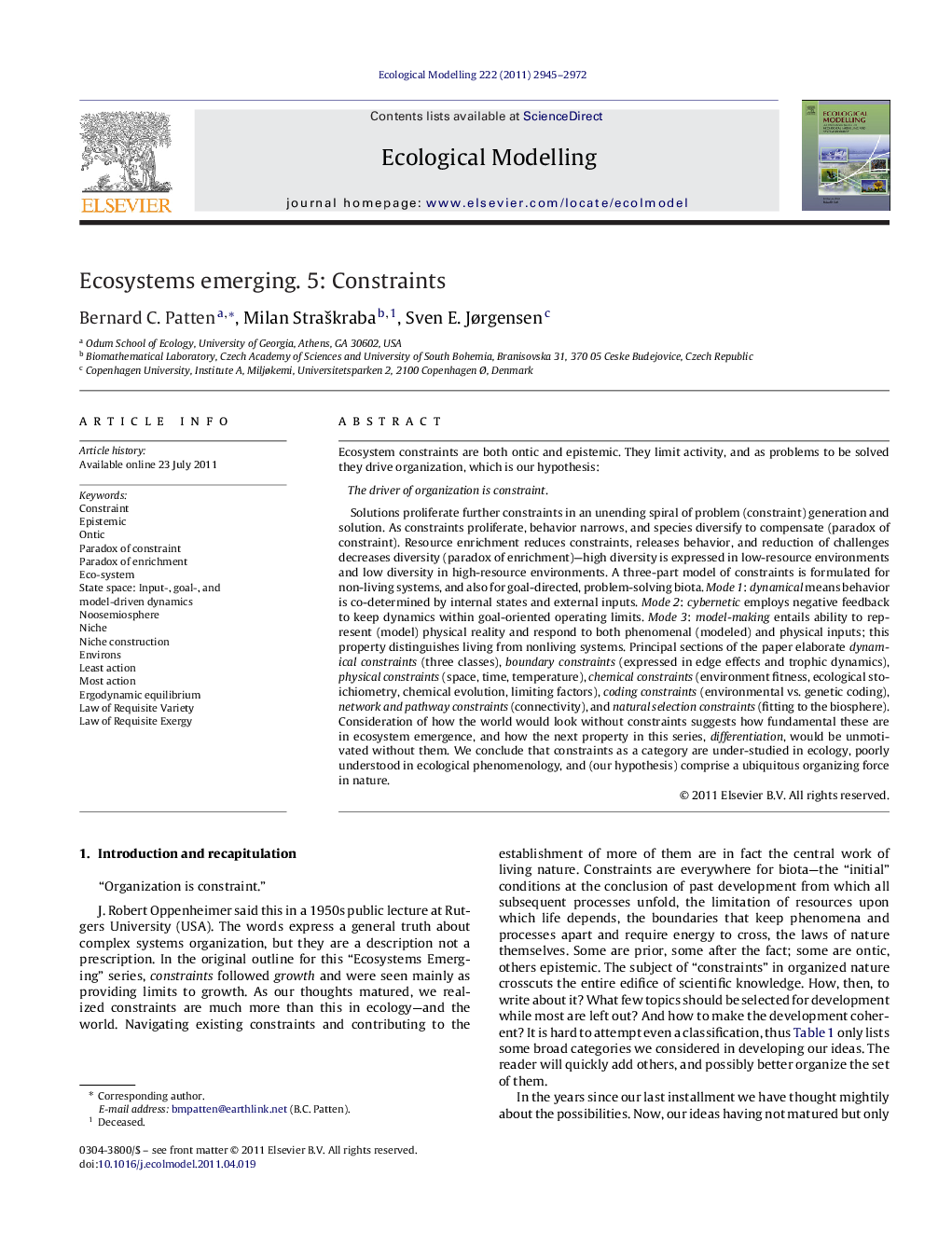| Article ID | Journal | Published Year | Pages | File Type |
|---|---|---|---|---|
| 4376757 | Ecological Modelling | 2011 | 28 Pages |
Ecosystem constraints are both ontic and epistemic. They limit activity, and as problems to be solved they drive organization, which is our hypothesis:The driver of organization is constraint.Solutions proliferate further constraints in an unending spiral of problem (constraint) generation and solution. As constraints proliferate, behavior narrows, and species diversify to compensate (paradox of constraint). Resource enrichment reduces constraints, releases behavior, and reduction of challenges decreases diversity (paradox of enrichment)—high diversity is expressed in low-resource environments and low diversity in high-resource environments. A three-part model of constraints is formulated for non-living systems, and also for goal-directed, problem-solving biota. Mode 1: dynamical means behavior is co-determined by internal states and external inputs. Mode 2: cybernetic employs negative feedback to keep dynamics within goal-oriented operating limits. Mode 3: model-making entails ability to represent (model) physical reality and respond to both phenomenal (modeled) and physical inputs; this property distinguishes living from nonliving systems. Principal sections of the paper elaborate dynamical constraints (three classes), boundary constraints (expressed in edge effects and trophic dynamics), physical constraints (space, time, temperature), chemical constraints (environment fitness, ecological stoichiometry, chemical evolution, limiting factors), coding constraints (environmental vs. genetic coding), network and pathway constraints (connectivity), and natural selection constraints (fitting to the biosphere). Consideration of how the world would look without constraints suggests how fundamental these are in ecosystem emergence, and how the next property in this series, differentiation, would be unmotivated without them. We conclude that constraints as a category are under-studied in ecology, poorly understood in ecological phenomenology, and (our hypothesis) comprise a ubiquitous organizing force in nature.
